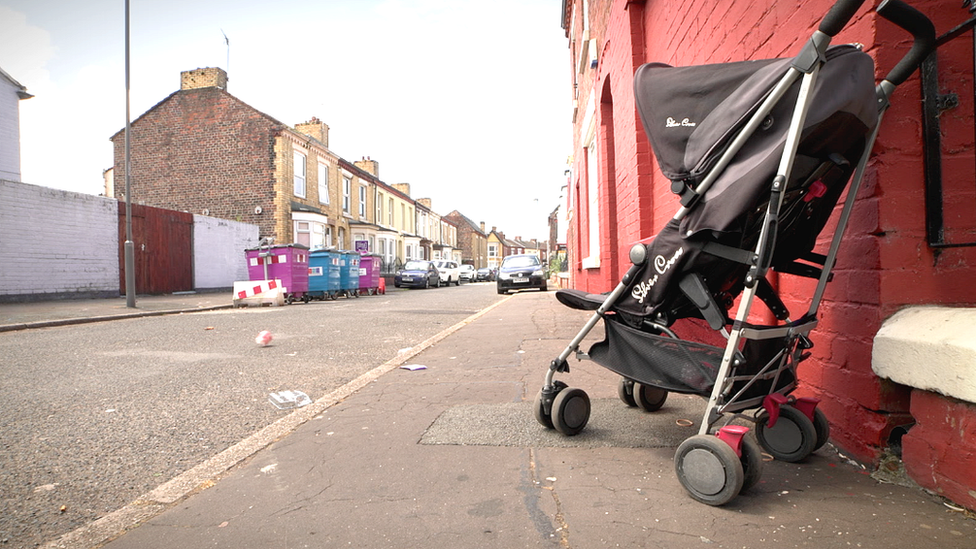Complaints about rats in social housing rise
- Published
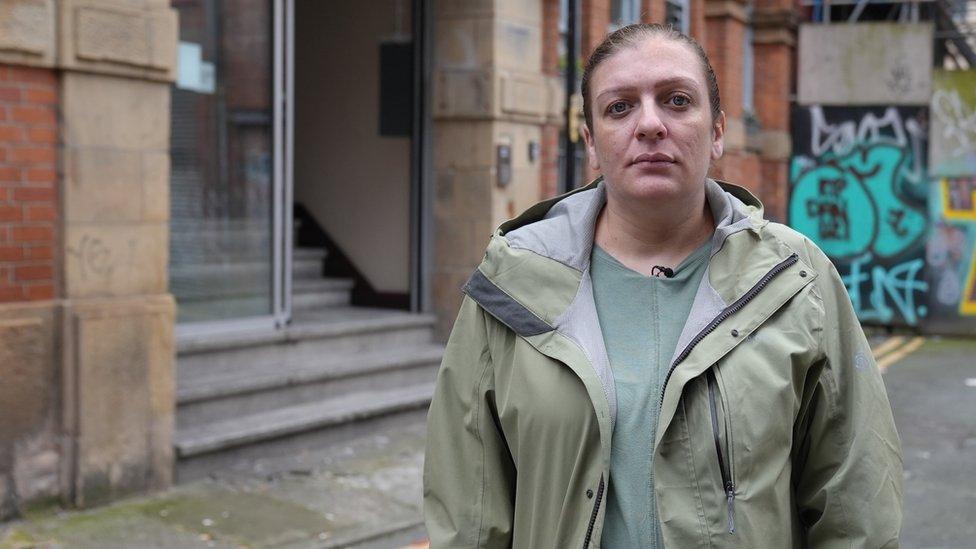
Michaela Ali has been living in temporary accommodation since March because there are rats in her housing association flat
Landlords are failing to resolve increasing numbers of complaints about rats in rental properties - and some are even blaming tenants' lifestyles, a leading housing official says.
It follows a tenfold increase in rat complaints in the past four years, the Housing Ombudsman for England adds.
It is a growing problem that needs to be "tackled with urgency", Richard Blakeway told the BBC.
The government says it has new powers to crack down on bad landlords.
Tenant Michaela Ali says rats have ruined her life. The 36-year-old nursing assistant is paying £500 per month renting a basement flat in Manchester city centre that she has not slept in since February - because of a rat infestation.
Michaela could hear the rats scurrying around in cavities in the walls, and after she reported the problem, pest control visited and made an access hole in the ceiling in which to lay bait.
"I used to wake up sweating at night, thinking they're going to fall on my head," she says.
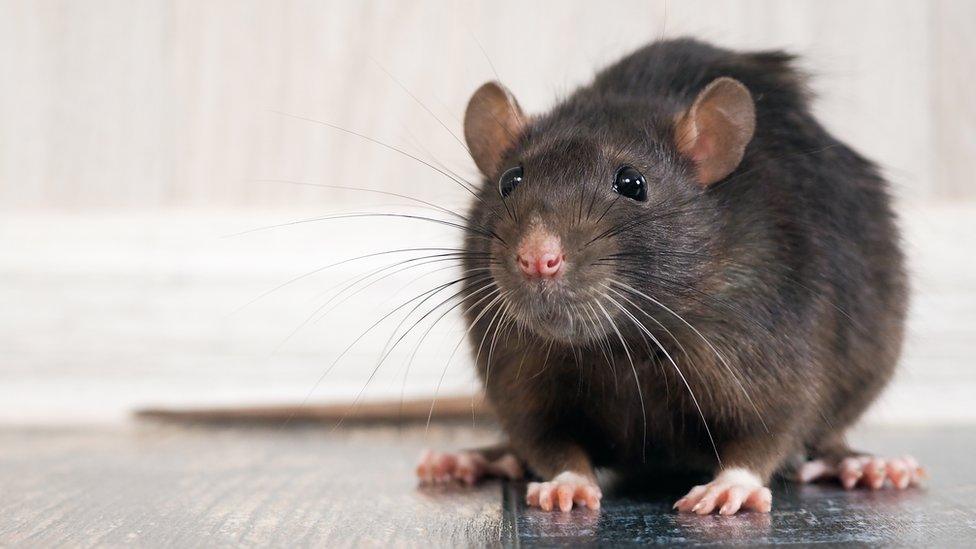
Pregnant with her first child, Michaela's housing association moved her out of the flat in March.
Since then, she has been put up in four different hotels and two short-stay apartments - and given birth to a baby girl - while the housing association tries to sort out the rodent problem.
"I do my shift and when I come back here, it hits me," she says, and starts to cry. "I don't know if the system is made for people like myself. Have I caused all this? That's how they make you feel. I didn't put the rats there."
Michaela says all she wants is "to be settled and for my baby to have her own bedroom". She says: "I've been living out of bags. It's very unsettling, because we don't know where we will be living - they give me two days before you've got to check out. It's draining."
Michaela says she has complained several times to her housing association, the Riverside Group, since she first reported hearing rats in her ceiling, in September 2022.
The Riverside Group told the BBC the rat problem in Michaela's flat is the result of nearby excavation work and that they have apologised to her.
"We remain determined and committed to solve this problem," it said, adding: "Like many areas across the country, social housing is scarce, which is why we have been calling on the government to provide further funding for more affordable homes."
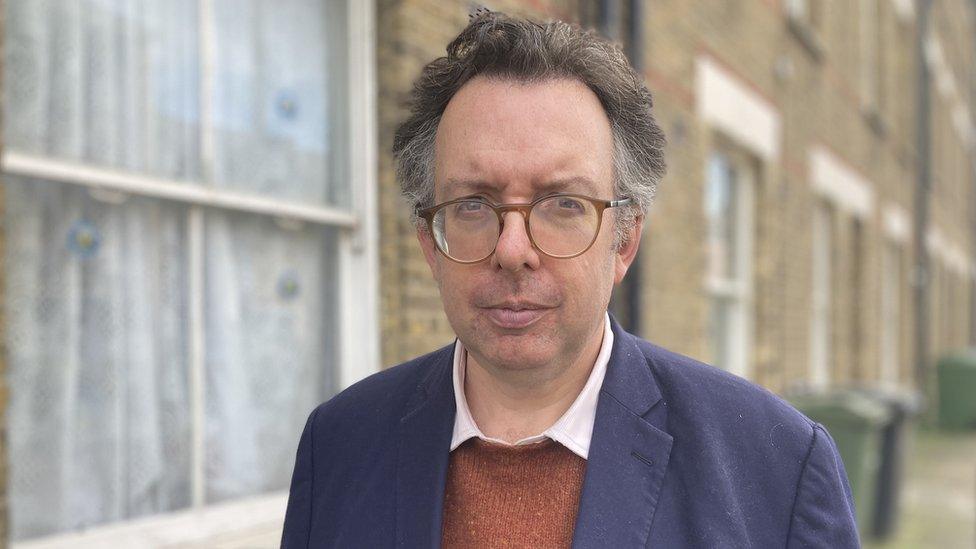
Richard Blakeway's job is to look into complaints about registered social housing providers
Social housing landlords have a legal responsibility to ensure their properties are habitable. If tenants are unhappy with their landlord's response to housing complaints, they can escalate their concerns to the independent Housing Ombudsman Service.
The number of social housing tenants taking complaints to the Ombudsman about rats has risen tenfold in the past four years, from 71 complaints in 2019/20, to 759 in 2022/23.
The rise in complaints about rats and other pests is likely due to various factors, including increased awareness of the complaints procedure.
But Housing Ombudsman for England Richard Blakeway says the figures are a snapshot of a growing problem.
"It's clearly a significant concern that we've seen an increase in reports around rats and pests because of the implications that might have for health and well-being," says Mr Blakeway. "This needs to be tackled with urgency and it needs to be treated with seriousness."
He says that similarly to issues with damp and mould in rental properties, when it comes to complaints about rats, some landlords are blaming their tenants for the problems.
"Sometimes landlords are over reliant on blaming the lifestyle of the resident rather than accepting responsibility themselves," he says.
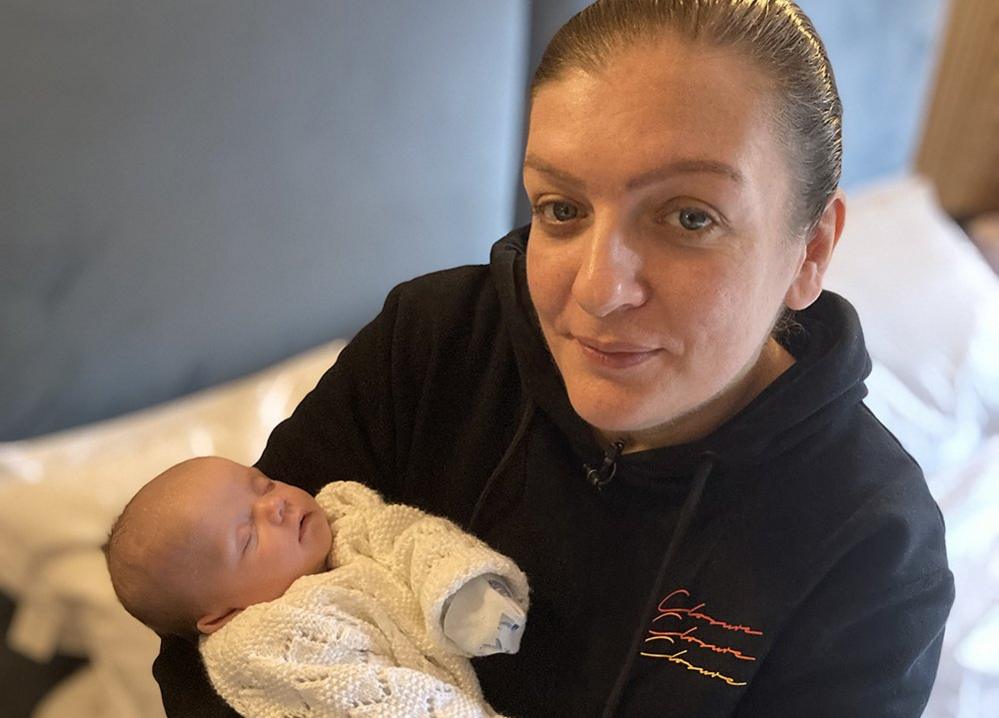
Michaela and her baby are living in a hotel room and have no access to any cooking facilities
The British Pest Control Association (BPCA) says it saw pest patterns change considerably during the Covid-19 lockdowns.
"Rats became more visible in residential areas. With less footfall across city and town centres, there was less associated food waste being left in bins and on the floor," says Natalie Bungay from the BPCA.
"As a result, rats were likely to move further afield to satisfy their need for a food source, often bringing them closer to residential properties.
"It may be that those habits built up over lockdown have persisted among rodent populations, meaning you're more likely to see a rat near your home now than you were pre-Covid-19."
The government says all landlords must ensure their properties are fit for human habitation and free from dangerously hazardous conditions - including pests such as rats: "Our ground-breaking Social Housing Regulation Act has introduced new powers to crack down on poor practice by social housing landlords."
Meanwhile, Michaela has been moved to new temporary accommodation, and is waiting for her flat to be sorted out.
"I want a safe home for my baby," she says, "somewhere we can both settle and I can be a mum, and just do the best I can for her."

5 Minutes On
In this episode of the 5 Minutes On podcast, social housing tenants in Manchester talk about the impact of rat infestations in their rented homes - and how difficult it is to get the problem resolved.


Are you personally affected by the issues raised in this story? Share your experiences by emailing haveyoursay@bbc.co.uk, external.
Please include a contact number if you are willing to speak to a BBC journalist. You can also get in touch in the following ways:
WhatsApp: +44 7756 165803
Tweet: @BBC_HaveYourSay, external
Please read our terms & conditions and privacy policy
If you are reading this page and can't see the form you will need to visit the mobile version of the BBC website to submit your question or comment or you can email us at HaveYourSay@bbc.co.uk, external. Please include your name, age and location with any submission.
- Published17 August 2023
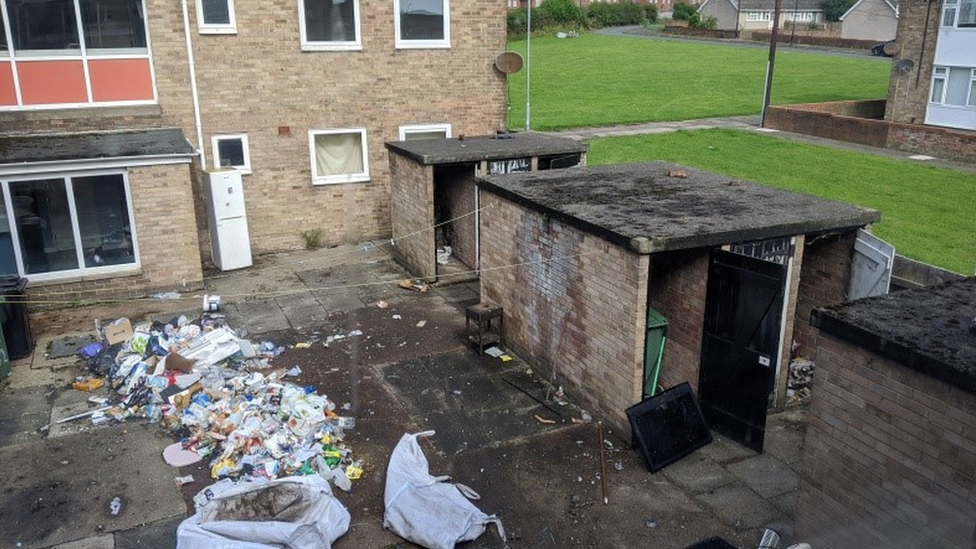
- Published27 May 2022
